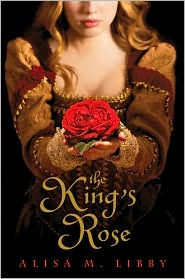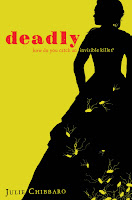Search This Blog
♥ YA Novelists Pushing the Boundaries of the Genre and Writing from the Heart ♥
Posts
Showing posts from 2010
Posted by
laurenstrasnick
Deadlines & Holiday Cheer
- Get link
- X
- Other Apps

Posted by
Jennifer Echols
I sure am glad I took the llama out.
- Get link
- X
- Other Apps

Posted by
Alisa M. Libby
you should be drinking cocoa right now
- Get link
- X
- Other Apps
Posted by
Trish Doller
There Are Exceptions to Every Rule
- Get link
- X
- Other Apps
Posted by
Sarah Porter
Fiction is Magic--Another Angle
- Get link
- X
- Other Apps

Posted by
Lauren Bjorkman
I like the unlikeable!
- Get link
- X
- Other Apps

Posted by
Danielle Joseph
The Mixed Tape of Jobs
- Get link
- X
- Other Apps

Posted by
Wendy Delsol
HOLIDAY GLEE IN A CAN by Wendy Delsol
- Get link
- X
- Other Apps
Posted by
Cheryl Renee Herbsman
On Revision and Addiction
- Get link
- X
- Other Apps

Posted by
Stephanie Kuehnert
My Other Jobs
- Get link
- X
- Other Apps

Posted by
holly cupala
Gifts of the Season
- Get link
- X
- Other Apps

Posted by
April Henry
Acting outside the lines
- Get link
- X
- Other Apps

Posted by
Janet Gurtler
I'm Not Afraid. To Take A Stand
- Get link
- X
- Other Apps

Posted by
Julie Chibbaro
Stranger Than Fiction
- Get link
- X
- Other Apps

Posted by
Barbara Caridad Ferrer
My particular gift
- Get link
- X
- Other Apps
Posted by
Jennifer Echols
FREE BOOKS because UGH!
- Get link
- X
- Other Apps




